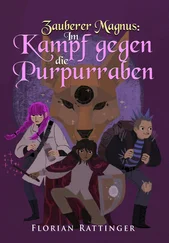Sylvie Germain - Magnus
Здесь есть возможность читать онлайн «Sylvie Germain - Magnus» весь текст электронной книги совершенно бесплатно (целиком полную версию без сокращений). В некоторых случаях можно слушать аудио, скачать через торрент в формате fb2 и присутствует краткое содержание. Год выпуска: 2008, Издательство: Dedalus Ltd, Жанр: Современная проза, на английском языке. Описание произведения, (предисловие) а так же отзывы посетителей доступны на портале библиотеки ЛибКат.
- Название:Magnus
- Автор:
- Издательство:Dedalus Ltd
- Жанр:
- Год:2008
- ISBN:нет данных
- Рейтинг книги:3 / 5. Голосов: 1
-
Избранное:Добавить в избранное
- Отзывы:
-
Ваша оценка:
- 60
- 1
- 2
- 3
- 4
- 5
Magnus: краткое содержание, описание и аннотация
Предлагаем к чтению аннотацию, описание, краткое содержание или предисловие (зависит от того, что написал сам автор книги «Magnus»). Если вы не нашли необходимую информацию о книге — напишите в комментариях, мы постараемся отыскать её.
Magnus — читать онлайн бесплатно полную книгу (весь текст) целиком
Ниже представлен текст книги, разбитый по страницам. Система сохранения места последней прочитанной страницы, позволяет с удобством читать онлайн бесплатно книгу «Magnus», без необходимости каждый раз заново искать на чём Вы остановились. Поставьте закладку, и сможете в любой момент перейти на страницу, на которой закончили чтение.
Интервал:
Закладка:
So Lothar was free to tell the child the truth, yet he had not done so, having never considered the time was right. And not a word of this truth — in any case an incomplete truth since no one knew the child’s real identity — had he breathed to anybody, not even his wife Hannelore or his daughters, for fear of adding to the deceit by sharing it with others without the knowledge of the person concerned. And indeed, he asks the young man how he discovered this secret. Who could possibly have told him? What happened in Mexico? But Magnus is unable to offer any explanation. How can he say, without being taken for a lunatic, ‘It was the earth that told me. The earth, the insects, the sun’? He says simply, ‘I just know, that’s all.’
And indeed that is all he knows. The disclosure imparted to him remains incomplete, only the lie about his childhood illness and his falsified parentage has been brought out into the open and confirmed, but he is still in the dark, even more than before, about who he is and where he comes from. He retrieves from the cupboard the teddy bear he had wrapped up and put away. He unwraps it and places it on his lap. He notices the handkerchief he had tied over the diamond eyes is wet through. He unties the handkerchief and discovers the diamonds have lost all their brilliance; they are covered with a rough greyish frosting. This frosting is seeping dampness, like a patch of saltpetre that forms on the wall of a cave. He pulls off the eyes clouded with this film of grey tears, stuffs them into his pocket, and replaces them with the little buttercups that he sews back on. The teddy bear is restored to the way it used to look, with its expression of mild bewilderment. But it has no new revelation to offer the person it once protected and for so long accompanied, still providing only the name it wore tied round its neck, the cotton-thread letters now bleached of colour through exposure to the acidity of the diamond tears.
Magnus is twenty years old (but when exactly was he born, and where?) and a quarter of his life is lost in oblivion, all the rest tainted by a long-lasting fraud.
He is twenty years old, and he is a stranger to himself, an anonymous young man overburdened with memory, lacking however in the essential: his ancestry. A young man crazed with memory and forgetting, who juggles with his uncertainties in various languages, none of which, perhaps, is his mother tongue.
He informs Lothar and Hannelore of his decision to leave England and to go and live in the United States. On the eve of his departure he walks along the banks of the Thames and throws the unseeing diamonds into the water. The handkerchief he has washed. It is now no more than a square of cotton thinner than a sheet of paper, translucid, of a yellowed white. He has tied it round the bear’s neck again.
Echo
My mother … my mother’s dead … her voice … so weak … had to travel a great distance … distance … distance…
Now I understand … And when …? when …? when …? did that happen, that she died …? she died …? she died…?
Fragment 14
Here begins the story of Magnus. Here, somewhere between San Francisco, New York, Montreal, Los Angeles, and Vancouver, and many other cities besides. May Gleanerstones is a dedicated theatre-goer. She works as a drama critic for several magazines and newspapers, and is always ready to travel thousands of kilometres to seek out new works. Magnus often accompanies her on these trips. Terence is an art dealer and also travels frequently.
Together with Scott, they form a family of four, bound by unconventional ties that interweave without tangling, in which love is declined in the mood of desire and friendship.
Magnus soon adapts to this new way of life of being continually on the move. May is the figurehead of a free ship that sets sail whenever the fancy takes it and adapts easily to prevailing conditions. Thanks to her he finally shrugs off his ghosts, leaves his past behind. The horizon now opens before him, no longer gaping behind him like a black hole. But as much averse as May is to being in any way dependent, especially financially, he takes up translation, translating articles for art magazines, technical publications, essays. His work is irregular, but it suits him because it allows him great freedom of movement.
On three occasions, however, those ghosts reintrude on his life: the first time shortly after moving to San Francisco, at dinner in a restaurant one evening with the Gleanerstones and Scott, when Terence suddenly interrupts the conversation and says to May and Magnus in a low voice, ‘Listen to the people at the table behind us. Listen carefully …’ They pay attention, Scott too. The guests at the table behind them are speaking in a harsh-sounding language. Magnus shrugs his shoulders slightly as a sign of incomprehension. May frowns, concentrating hard. ‘It reminds me of something, but what?’
Terence helps her out by suggesting, ‘Comala?’
May immediately concurs. ‘Comala! You’re right!’
Then, turning to Magnus, she says, ‘It sounds like the language you spoke at times in your delirium at the hospital in Veracruz … those words that weren’t German, that no one could identify…’
Magnus has no recollection of these words he apparently uttered, only the vision of that fateful night in Hamburg has engraved itself on his memory — an explosive image that has cast a new light on his life, but also a blinding image, an obstacle blocking off all his most distant past.
Scott, who feels left out of this memory game, finds a way of joining in: he gets up and goes and asks the tourists what country they are from. He returns to the table, sits downs, and turns it into a guessing game. None of the guesses his friends make is correct, so he finally tells them the answer: ‘Iceland. Magnus must be a clandestine Icelander!’ he announces, and proud of the word he has just elicited from the Icelanders, he raises his glass to Magnus, addressing him with a deep-toned ‘ Skal !’
But to the surprise of the Gleanerstones and of Scott, Magnus displays no emotion or curiosity in the face of this revelation he regards as fanciful, and he is eager to change the topic of conversation. For the time being he has no desire to look back, to start rummaging through the rubble once more, to wear himself out ferreting around in obscure labyrinths. He is happy where he is and now wants to live only in the present.
On the subsequent occasions, his ghosts return by less fortuitous routes, evoked by current events: these occur in quick succession, in 1961 with the opening in Jerusalem of the trial of Lieutenant-Colonel Eichmann, which gets extensive world-wide coverage, then with the construction of the wall dividing Berlin in two.
A report on the trial of the Nazi criminal, written by the philosopher Hannah Arendt for the New Yorker weekly magazine, causes a sensation. She is criticized for her tone, felt to be casual, arrogant, and above all for her analysis and judgment. Magnus reads the indicted report and far from taking exception to it embraces the idea of the ‘banality of evil’. For him, it is no ill-considered concept but rather a finger placed unerringly on a wound so ugly and shameful everyone would rather not see it. Reading Hannah Arendt’s text, he cannot help hearing in the background the voices of those other perpetrators of death and destruction he knew, with whom he came into close contact: the resounding laughter of the humorist Julius Schlack, the perfect elocution of that fine connoisseur of poetry Horst Witzel, and the deep baritone of Clemens Dunkeltal. Voices that would surely have responded, like Eichmann, in a curt monotone devoid of any remorse, ‘Not guilty’ to each charge made against them by a tribunal, had they been captured and brought to trial.
Читать дальшеИнтервал:
Закладка:
Похожие книги на «Magnus»
Представляем Вашему вниманию похожие книги на «Magnus» списком для выбора. Мы отобрали схожую по названию и смыслу литературу в надежде предоставить читателям больше вариантов отыскать новые, интересные, ещё непрочитанные произведения.
Обсуждение, отзывы о книге «Magnus» и просто собственные мнения читателей. Оставьте ваши комментарии, напишите, что Вы думаете о произведении, его смысле или главных героях. Укажите что конкретно понравилось, а что нет, и почему Вы так считаете.












